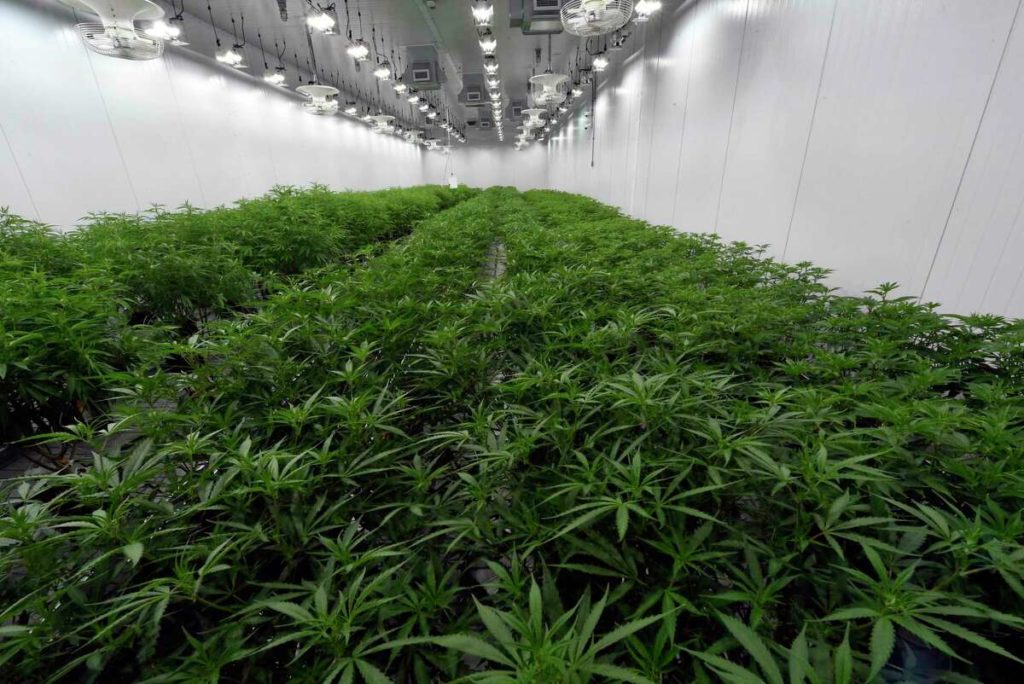This Aug. 22, 2019 photo shows medical marijuana plants being grown before flowering during a media tour of the Curaleaf medical cannabis cultivation and processing facility in Ravena, N.Y. After legislative efforts stalled and a vaping sickness stirred new concerns, the governors of New York, New Jersey and Connecticut still want to make recreational pot legal. But the states have different approaches and timeframes, and some proposals have shifted since last year. (AP Photo/Hans Pennink)
Hans Pennink / Associated PressTo operate in Connecticut’s adult use cannabis market, most people will have to win a license through the lottery – a long shot particularly for more popular license types such as retail.
But the state’s cannabis law provides several exceptions to that process including for equity applicants interested in growing marijuana. Those applicants must meet certain income and residency requirements. The goal is to provide people who were targeted by the past criminalization of marijuana with an opportunity to get into the legal industry.
The state received 41 applications for social equity cultivator licenses, which are reserved for equity applicants who want to operate grow facilities in one of the disproportionately impacted areas identified by the state. The areas, which tend to be urban and low-income, were identified based on past cannabis convictions and unemployment rates.
There’s no limit to the number of the social equity cultivator licenses the state can issue so technically any applicant who meets the criteria could get one. If selected, applicants must pay $3 million for a provisional license.



